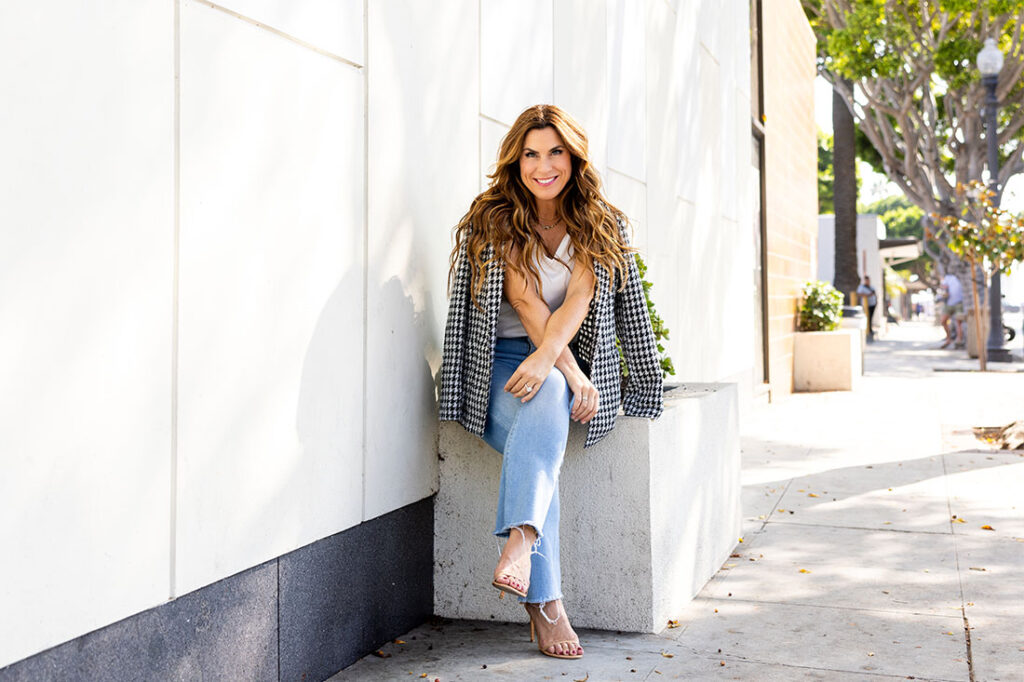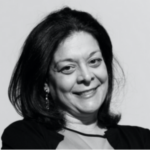For serial entrepreneurs, finding success can take a few tries. For Erin King, her third try’s the charm.
King founded her first company, Jump Digital Media, in 2009 at age 25. “We built websites, and it was a disaster from the start,” King admits. The company crashed and burned in 10 months, and; King took on $70,000 of credit card debt by financing payroll on her personal credit card. After shutting down the company, King took a corporate job to get out of debt and gain more experience.
Her second venture, PMS.com, which King described as a Dollar Shave Club for women’s monthly health care needs, was founded in December 2013. King raised seven figures of capital pitching an all-male investor group, which she writes about in her book, You’re Kind of a Big Deal: Level Up by Unlocking Your Audacity. At first, it seemed like none of the investors would fund her startup. Then, one said yes after discovering he and King had something in common—they’re both University of Maryland alums. “It only takes one,” King says.
Despite having seed money, PMS.com failed, too. There were too many “copycat competitors,” and the margins were tough because clients could also order items for delivery through Amazon, King says. Despite 25,000 women signing up for the service, PMS.com wasn’t profitable.
However, the URL was very valuable. An investor from Asia offered five times the valuation of the whole company for its URL. Even with that payoff, King says the company barely broke even.

Through all this, King never stopped believing in herself. “I really had this feeling in my gut like there was something else out there for me,” she says.
King parlayed PMS.com’s 1.2 million Facebook group members into a social media community for small, local brands and created Socialite Agency, which, spoiler alert, was acquired by digital marketing agency Strikepoint in January 2022.
Following your intuition
When King started Socialite Agency, her friends and family questioned whether it was wise to try again. After all, she had gone into debt once, dug herself out of debt, raised money, and then crashed and burned again. But King believed that it was possible for her to succeed.
“In my heart of hearts, I had this tug and intuition,” she says.
King made a deal with herself when she started Socialite Agency: After six months, if company profits couldn’t pay the bills, she would admit defeat. Then, she started pounding the pavement, sending cold emails, making cold calls and asking people to give her company a chance.
Persistence pays off
“We were really struggling,” King says. “We had very small clients with champagne taste on a beer budget.” Because Socialite Agency didn’t have any large wins or notable clients, most people King reached out to would decline to work with the agency.
Until one day, when King was researching prospects on LinkedIn and came across a profile of a “fellow dog mom,” who also happened to be an executive producer for the Oscars. King sent her a personalized message through LinkedIn that included an idea for making the Oscars more exciting for home viewers. The event can be long and boring for TV viewers, King says, so she suggested creating an app called “Backstage Pass” that would livestream what was happening backstage, such as unscripted conversations between stars, to encourage people at home to watch the awards show on TV and on their smartphones.
The producer invited King to a meeting and ultimately hired Socialite Agency to run social media for the 86th Academy Awards in 2014. “She ended up hiring my little nobody social media agency over these big agencies in New York and London,” King says.
That was the year the now-famous selfie of Ellen DeGeneres, Bradley Cooper and other celebrities went viral. King admits the selfie wasn’t her idea, but it happened on her watch, so she earned credit for it. “We had this breakthrough client, and it changed my entire life as an entrepreneur,” she says.
After its Oscars success, Socialite Agency was hired to manage social media for fashion week, Visa and even the U.S. Navy. “Once you get the one big break, you’ve got the momentum,” she says.
Learning ‘Personal Energy Management’
Although King sold Socialite Agency, she remains on Strikepoint’s board in an advisory role as the company’s chief energy officer. King coaches the staff on their personal energy management to help prevent burnout from the high-stress pace of digital agency work and complex client management. She helps project managers to feel calmer and the sales team to be more persuasive.
Personal energy management is King’s new passion. She created The Energy Exam®, a comprehensive assessment to evaluate personal human energy and help people avoid burnout.
“We talk about powering through if we have a deadline, but powering through is only sustainable for so long,” King says. When we’re done powering through, most people look to power down, perhaps by taking a vacation or turning off their phones. But no one can power down forever, so we often get stuck in a cycle of powering through and powering down.
King has found herself caught in that cycle many times. During the pandemic, she was giving virtual keynotes on disparate topics, ranging from social media to AI to personal development. “I was really trying to power through, and I wasn’t paying attention to my battery at all,” she says. King noticed when she was speaking on stage or on camera, she would have to take a breath in between sentences; she was having trouble swallowing, and her hair was falling out. During a week when she delivered keynotes on five different topics, she woke up one morning and thought she was having a heart attack. It turned out to be a panic attack.
Breaking the cycle of powering up and down
Soon after, she was scheduled to give a keynote in Bali and decided to spend an extra 10 days there to relax and energize. It was great while she was there, but once she returned home, she noticed herself going back to the same pattern of powering through and then powering down.
“The first couple of weeks I was burning incense and doing yoga, but then you get back to real life and you find yourself stuck in the same battery-destroying pattern of powering through and powering down,” King said.
From burnout to balance
She didn’t want to live in a state of burnout or in a state of doing nothing. So, she commissioned a study by Ph.D. researchers to find out how to navigate the highest echelons of success without becoming exhausted. A dozen Ph.D. researchers and King interviewed thousands of people of all different ages from across the country.
The big takeaway is people who have high life satisfaction and high energy use language that isn’t about powering through or powering up, King says. Instead, they say things like, “I know my limits,” “playing to my strengths” and “drawing my boundaries.” The most satisfied and energetic people are self-aware in terms of how their personal battery works, King says.
The research also taught King that, if she’s not intentional about boundaries, her battery will drain faster. To help her cope, King hired a therapist and decided to focus on speaking about just one topic—personal energy management.
She also realized that she gets energy from spending time with her girlfriends. “I have this incredible squad of women and a few good men who are thought leaders or creatives, executives, authors and entrepreneurs, but also some of them are moms, daughters, wives and cousins,” she says. Yet, finding time to be with friends gets more challenging as people get busier with life and family obligations.
“Even if I can’t see them in person, I call someone on the phone—not text, not social media, not a comment, not a voicemail,” King says. “I call them on the phone for a walk and talk, and we get our steps in.”
This article originally appeared in the September/October 2024 issue of SUCCESS magazine. Image courtesy of Erin King











